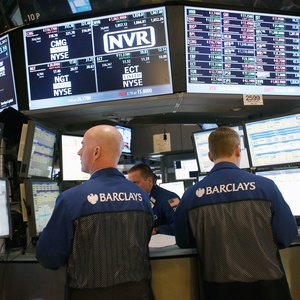
Market-traded stock options give buyers the right to buy or sell a specific stock at a set price for a limited time. If the company underlying an option is purchased by another company, traders who hold those options should understand the consequences. The good news is that a buyout announcement can be a very profitable event for owners of call options, which allow them to buy the stock at a certain price. Not so much if you own puts on the stock; a put allows the owner to sell the stock for a specified price.
Types of Buyout Offers
When one company offers to buy out or merge with another company, the offer can take one of three different forms. An all-stock offer swaps shares of the buying company for shares of the target company. There might be a ratio of shares offered. For example, investors in the company that's being bought out might get one share of the buying company for every two shares they hold in the buyout company. An offer can be an all-cash offer. In that case, investors in the target company get cash for their shares if the merger is approved. An offer and buyout also can be a combination of shares and cash for the target company shares.
All-Cash Buyout
When a company is bought for a cash price per share, the options will be valued for cash settlement on the date the buyout is effective. A call option on the bought company will have value if the buyout price is above the option exercise or strike price. As a example, you hold an option to buy at $40 per share and the underlying stock is bought out for $50 cash. On the date the buyout is effective, you would receive $1,000 for your option: the $50 buyout price minus the $40 option strike price, times the 100 shares that one option contract covers. If the strike price on your call was above the $50, you would get nothing. Put option holders would receive cash if the buyout price were below the put strike price. A trader who sold options would be required to deliver the cash.
All-Stock Offer
With an all-stock merger, the number of shares covered by a call option is changed to adjust for the value of the buyout. The options on the bought-out company will change to options on the buyer stock at the same strike price, but for a different number of shares. Normally, one option is for 100 shares of the underlying stock. For example, company A buys company B, exchanging 1/2 share of A for each share of B. Options purchased on company B stock would change to options on company A, with 50 shares of stock delivered if the option is exercised.
Stock Plus Cash Buyout
A stock plus cash buyout of a company results in a change of the stock covered by option on the company being purchased, a change in the number of shares to be delivered, and a cash kicker. For example, company A is buying company B by swapping 1/2 share of A plus $3 for each share of B. After the merger, a former call option on B will require the delivery by the option seller of 50 shares of A plus $300 if the call is exercised by the buyer.
What to Do
If you have bought or sold options on a stock that becomes the target of a buyout, the best case might be to just close out the position before the merger becomes effective. The market price of the options will reflect the buyout terms. Unless a bidding war erupts on the company to be bought, there will be little movement in the option price until the merger goes through. It could be several months between the time a buyout offer is made and when it is approved and becomes effective.
References
Writer Bio
Tim Plaehn has been writing financial, investment and trading articles and blogs since 2007. His work has appeared online at Seeking Alpha, Marketwatch.com and various other websites. Plaehn has a bachelor's degree in mathematics from the U.S. Air Force Academy.

